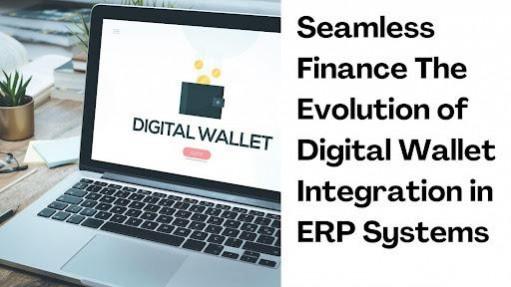
Modern financial operations are undergoing a digital revolution, and at the forefront of this transformation is the integration of digital wallets within Enterprise Resource Planning (ERP) systems. Bhagavathi Sathya Satish Kadiyala, an industry expert, explores this evolution and its impact on enterprise financial operations. This innovative shift is redefining financial management by streamlining payments, enhancing security, and optimizing business processes.
The Power of Digital Wallet Integration
ERP systems were traditionally designed to manage financial data and streamline business processes, but with the rise of digital transactions, organizations are moving toward integrated digital wallet solutions. This integration provides businesses with a seamless way to manage transactions, reduce manual processes, and enhance real-time financial tracking. By embedding digital wallets within ERP frameworks, organizations gain improved transaction accuracy, faster payment processing, and a more cohesive financial ecosystem.
Advanced Security Frameworks for Financial Transactions
Security remains a top priority in financial operations, and digital wallet integration offers cutting-edge encryption and authentication mechanisms. The implementation of quantum-resistant encryption, adaptive authentication models, and blockchain-based security ensures that sensitive financial data remains protected. These advancements reduce fraud risks and unauthorized access, enabling enterprises to conduct transactions with greater confidence and efficiency.
AI-Powered Expense Management
Artificial intelligence (AI) is playing a crucial role in revolutionizing expense tracking within ERP systems. AI-driven expense categorization and predictive analytics allow organizations to optimize financial decision-making by analyzing spending patterns in real-time. With automated reconciliation processes reducing manual efforts by up to 85%, businesses experience fewer errors and enhanced operational accuracy.
Cross-Border Transactions Made Effortless
The complexity of cross-border transactions has long been a challenge for enterprises, but digital wallet integration addresses these hurdles with smart contract-enabled blockchain solutions. These mechanisms facilitate near-instantaneous transactions while maintaining compliance with international regulations. Additionally, AI-driven transaction analysis helps optimize fee structures, leading to a 45% reduction in transaction costs and improving overall efficiency in global financial operations.
The Role of Real-Time Financial Planning
The ability to access real-time financial insights is crucial for strategic decision-making. Integrated digital wallet solutions enable ERP systems to provide predictive analytics, scenario planning, and automated financial modeling. These capabilities ensure that organizations can swiftly adapt to market changes, forecast financial trends, and maintain a competitive edge through data-driven decision-making.
Enhancing User Experience Through Automation
User experience is a fundamental aspect of financial system integration. Customizable dashboards and AI-driven automation are improving financial workflows, allowing organizations to streamline payment approvals, invoice processing, and fund transfers. By leveraging AI-powered learning mechanisms, ERP-integrated digital wallets enhance user efficiency, reduce operational bottlenecks, and create a more intuitive financial management experience.
Redefining Compliance and Regulatory Standards
Digital transformation in financial operations must align with evolving regulatory requirements. AI-driven compliance engines within ERP-integrated digital wallets continuously analyze and adapt to changing legal frameworks. These systems ensure that organizations remain compliant across multiple jurisdictions, with automated compliance monitoring reducing audit preparation times by 70% and improving regulatory reporting accuracy.
The Future of ERP-Integrated Digital Wallets
As digital transformation evolves, the future of ERP-integrated digital wallets lies in intelligent automation and scalability. Trends such as decentralized finance (DeFi), real-time payment networks, and embedded financial services will further enhance digital payment capabilities. Organizations investing in future-ready integration strategies will be well-positioned to navigate the changing financial landscape.
In conclusion, the integration of digital wallets within ERP systems is more than just an upgrade; it is a transformative step toward a more efficient, secure, and intelligent financial ecosystem. Bhagavathi Sathya Satish Kadiyala highlights how enterprises embracing this innovation are experiencing increased efficiency, reduced costs, and improved financial agility. As technology advances, businesses must continue adapting and integrating intelligent financial solutions to stay ahead in the digital economy.















